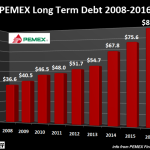The cost of jet fuel is a major factor in determining the price of airline tickets. Jet fuel, also known as aviation turbine fuel, is a type of kerosene-based fuel that is used to power jet engines. It is a crucial component in the operation of commercial airlines, and any changes in its cost can have a significant impact on the overall cost of air travel.
The price of jet fuel is influenced by a variety of factors, including global oil prices, supply and demand, and geopolitical events. As a result, it can fluctuate greatly, making it a volatile expense for airlines. In recent years, the cost of jet fuel has been on the rise, and this has had a direct impact on the cost of airline tickets.
One of the main reasons for the increase in jet fuel prices is the rising cost of crude oil. Jet fuel is derived from crude oil, and as the price of oil increases, so does the cost of jet fuel. This is due to the fact that oil is a finite resource, and as demand for it continues to grow, the supply becomes more limited, driving up prices.
Another factor that affects the cost of jet fuel is supply and demand. As more people travel by air, the demand for jet fuel increases, which can drive up its price. Additionally, unexpected events such as natural disasters or political unrest in oil-producing countries can disrupt the supply of jet fuel, causing prices to spike.
The impact of jet fuel prices on airline tickets is significant. Airlines have to factor in the cost of jet fuel when determining the price of their tickets. When the cost of jet fuel increases, airlines may have to raise ticket prices to cover their expenses. This can result in higher airfare for passengers, making air travel more expensive.
Moreover, the cost of jet fuel also affects the profitability of airlines. When jet fuel prices are high, airlines may struggle to make a profit, especially if they are unable to pass on the increased cost to passengers. This can lead to financial difficulties for airlines, which may result in reduced services or even bankruptcy.
To mitigate the impact of jet fuel prices, airlines often use hedging strategies. This involves purchasing jet fuel in advance at a fixed price to protect against future price increases. However, this strategy is not foolproof and can backfire if jet fuel prices decrease, resulting in airlines paying more than the market price.
In conclusion, the cost of jet fuel has a significant impact on the price of airline tickets. As a crucial component in the operation of commercial airlines, any changes in its cost can have a ripple effect on the entire industry. While airlines try to mitigate the impact through hedging strategies, ultimately, the cost of jet fuel remains a major factor in determining the cost of air travel for consumers.
 English
English








